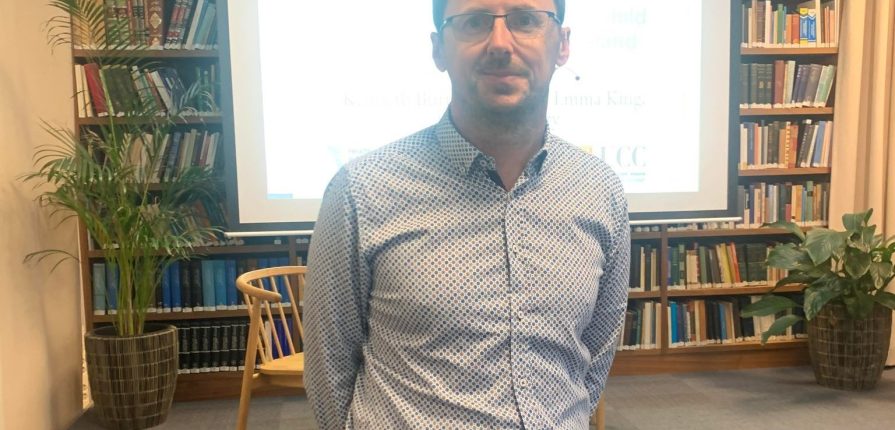Centre for Research on Discretion and Paternalism (DIPA) had the privilege of hosting Deputy Director Kenneth Burns from University College Cork (UCC, Cork, Ireland) through the Erasmus+ Program. Kenneth visited us from the 18th of September 2023 until the 22nd of September. During his stay he had guidance sessions with the Centre’s PhD candidates, Master students at the department, and presented at our RDV seminar. The title of his presentation was “Analysis or paralysis? Monitory mechanisms for child protection services in Ireland”. In this talk he presented the final version of his paper, which focuses on examining the strategies and mechanisms adopted by Ireland to monitor the operation, quality and development of its child protection and welfare system. The paper is looking at three things: an overview of Ireland’s child protection system, a focus on why countries require power-checking mechanisms for state bodies including child protection, and a new “country analysis framework” to catalogue and analyse these systems within countries. The paper will be submitted to Child and Family Social Work as part of a special edition on this topic later in the year. He participated in the daily activities of the Centre, amongst other things, he participated in a training session on presentations where he gave feedback to our researchers and PhD students.
Get to Know Kenneth
How did you become interested in your field?
I became interested in my field by accident while studying modules as part of an undergraduate programme. My interest in children and child protection arose from my front-line practice experience in social work.
What brought you to our research centre?
I have been a regular visitor over the last decade. This was an opportunity to teach through the ERASMUS+ programme.
How do you see your research benefiting the broader scientific community or society?
Research on child protection is an essential part of the social sciences. The families and children who use these services, and the professionals, states and organisations that provide child protection services, need a strong evidential and research basis to examine how these systems are working and developing.
Do you have any memorable moments or experiences from your stay with our research centre that you’d like to share?
I enjoyed observing the DIPA researcher training programme for public speaking at conferences. It is a particular interest of mine, and this type of training is invaluable for upcoming researchers.
What are your future plans or projects in your research career?
I am working with colleagues on a national study of social media abuse and harassment of social workers, probation officers, and social work students. The second phase involves qualitative interviews with child protection social workers and managers. A focus on the impact of social media and digital platforms is likely to be an “extra” aspect of many research studies in the future. Find out more about the study here.
About Kenneth
Kenneth Burns is a senior lecturer, Deputy Director of the Master of Social Work course and Director of Practice (social work) at University College Cork. He has worked as a social worker and social work team leader in child protection and welfare. His main research and teaching interests are in child protection policy and practice, staff retention, social media abuse in social work, childcare proceedings in the District Court / voluntary care / informal kinship care, and community-based participatory research. If you are interested in Kenneth’s research, you can read more about it here.

